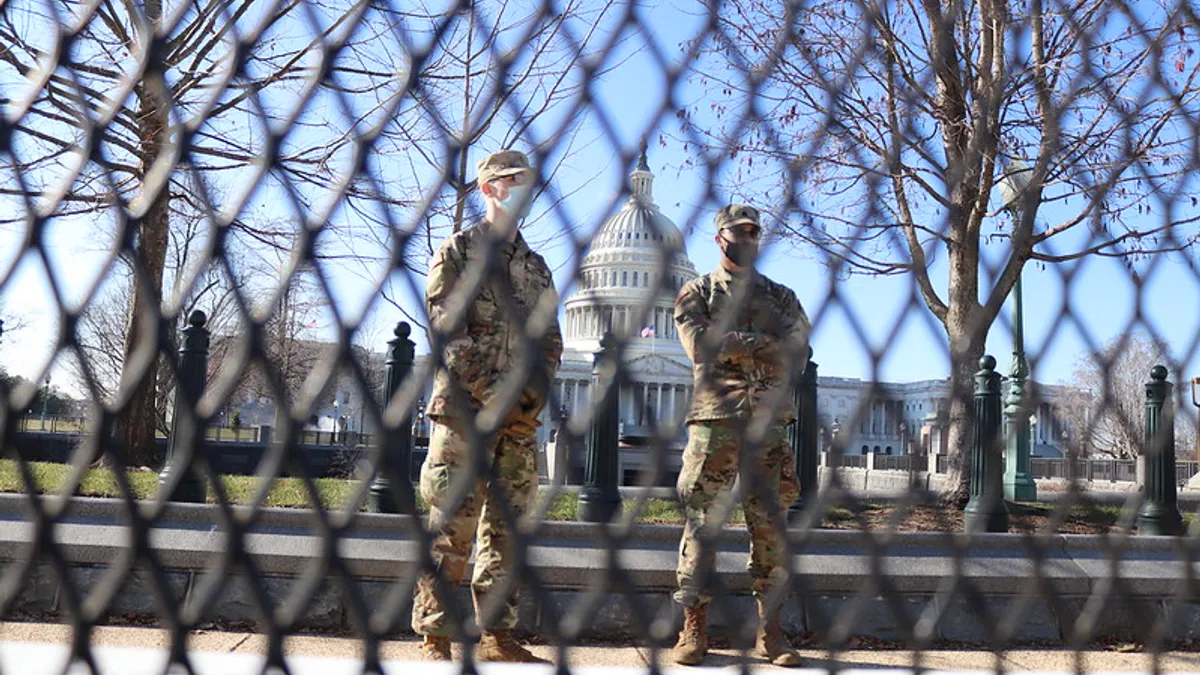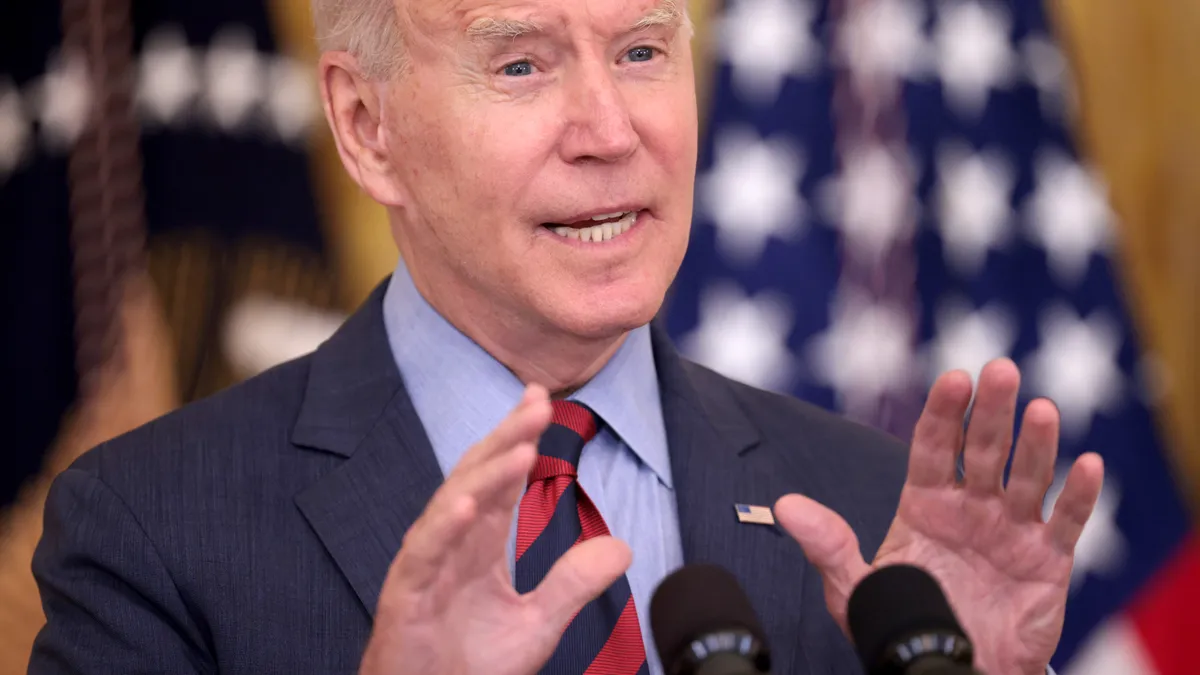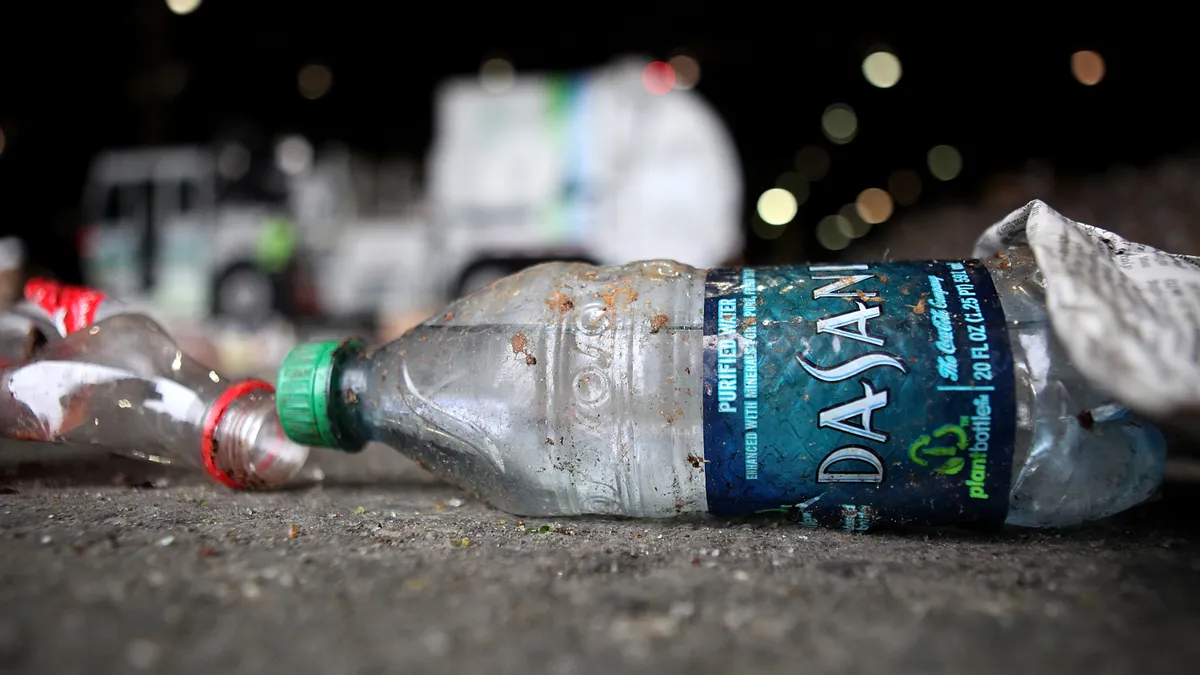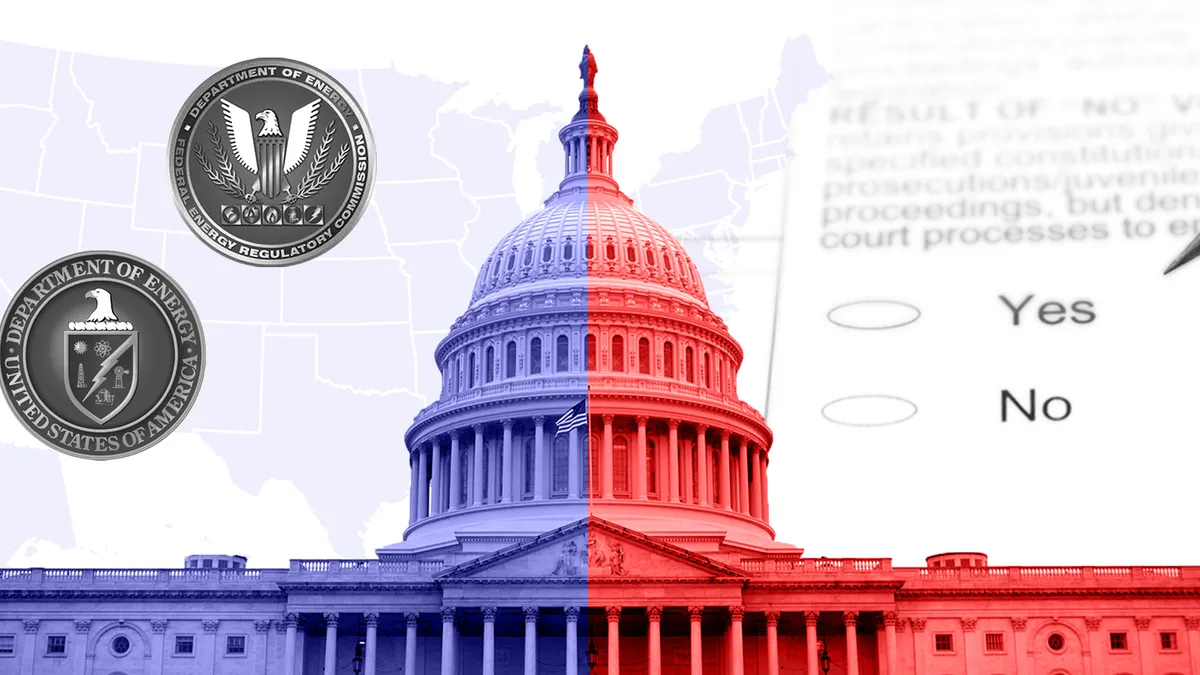Following last week's violent insurrection at the U.S. Capitol, numerous players in the broader corporate world have vowed to pause or reconsider campaign contributions to members of Congress who voted against certifying the presidential election results. So far, most waste and recycling industry groups are not part of that list.
In the aftermath of the deadly Jan. 6 mob attack, which led to the second impeachment of President Donald Trump, corporate political action committee (PAC) contributions to the 147 Republican members of Congress who went against the election certification have come under greater scrutiny. According to Popular Information, which initiated the reporting and has been tracking announcements, nearly two dozen corporate PACs have pledged to stop donating to these elected officials. Dozens more have said they will pause overall political contributions, or review their strategies moving forward.
PACs affiliated with Waste Management, Republic Services, the National Waste & Recycling Association (NWRA) and Institute of Scrap Recycling Industries (ISRI) have all donated to members of Congress who voted against certifying the election results from Arizona and Pennsylvania. Collectively, these specific donations totaled at least $39,750 during the past two federal election cycles and account for a minority of overall donations. In some cases, PAC funds were raised by voluntary contributions from employees.
| PAC | Total disbursements | Number of candidates who voted against certifying election |
|---|---|---|
| REPUBLIC SVCS. INC. EMPLOYEES FOR BETTER GOVT. PAC | $17,250 | 6 |
| WASTE MANAGEMENT EMPLOYEES BETTER GOVERNMENT FUND | $12,500 | 6 |
| NATIONAL WASTE & RECYCLING ASSOCIATION PAC | $9,000 | 7 |
| INSTITUTE OF SCRAP RECYCLING INDUSTRIES INC. POLITICAL ACTION COMMITTEE | $1,000 | 1 |
SOURCE: Federal Election Commission data from 2017-2020
The broader waste and recycling industry's contributions to federal campaigns was predominantly directed to Republican candidates during the most recent election cycle, more so than many other sectors, according to the Center for Responsive Politics. Leaders at the waste industry's two largest companies, Waste Management CEO Jim Fish and Republic CEO Don Slager, also made personal contributions to Trump and other Republican PACs or candidates during the latest cycle.
At the same time, industry PACs are not among the largest contributors to federal candidates of any type. Much of the activity by the company-affiliated PACs has traditionally been focused on state and local candidates in areas relevant to their business. All four PACs have made contributions to Democratic and Republican federal candidates, with strategies that often focus on relevant committee positions.
A closer look
Republic's PAC was the industry's largest financial contributor to Republican officials who voted against certifying the election of President-elect Joe Biden. Among them: Reps. Andy Biggs, Debbie Lesko and David Schweikert of Arizona; Rep. Jason Smith of Missouri; and Reps. Lance Gooden and August Pfluger of Texas.
"Republic Services supports candidates who share our company values and business priorities, irrespective of political party. Traditionally, more than 90 percent of our political contributions have gone to local candidates, rather than federal candidates, in the markets we serve," said a Republic spokesperson via email. "We wholeheartedly condemn the attack on the U.S. Capitol and any effort to undermine the democratic process. As a result, we have suspended federal contributions, and we will continue to monitor developments and make any policy adjustments as appropriate."
Republic confirmed this includes all federal contributions, regardless of party affiliation or other factors.
Waste Management's PAC donations to relevant officials include Rep. Sam Graves of Missouri; Rep. Richard Hudson of North Carolina; Rep. Tom Cole of Oklahoma; and Reps. Michael Burgess and Pat Fallon of Texas.
"At this time, no changes have been made. The WM PAC will consider changes as part of its annual review of its policies," said spokesperson Janette Micelli via email, pointing to the company's policy on political donations for further details. "Those candidates are included among the numerous state and federal candidates to whom we contributed. The contributions to those candidates represent less than 2.5% of our contributions in the last cycle."
The NWRA PAC's relevant donations went to Rep. David Schweikert of Arizona, Rep. Mike Bost of Illinois, Rep. Tim Walberg of Michigan, Rep. Sam Graves of Missouri, Rep. Bill Johnson of Ohio, Rep. Morgan Griffith of Virginia and Rep. Alex Mooney of West Virginia.
"The NWRA PAC has yet to begin developing its 2022 election cycle strategic giving plan, which is done in consultation with its PAC board, so at this point we do not have anything to report," said Brandon Wright, vice president of communications and media relations, via email.
The ISRI PAC's relevant donation went to Rep. Tom Rice of South Carolina. Rice later surprised many political observers by becoming one of the 10 House Republicans to vote in favor of impeachment this week.
“ISRI continuously evaluates its political outreach throughout the year and after every election," said Vice President of Advocacy Adina Renee Adler in a statement.
Next steps
The increasingly turbulent political climate has created heightened pressure for companies and trade groups of all types to decide when to take stances on climate change, immigration policy, systemic racism and many other complex topics in recent years. Political contribution strategies have evolved throughout, but the dollars have largely continued to flow.
Now, given the nature of the Jan. 6 insurrection, notable players in other sectors are taking more definitive stances. Dow and General Electric are among the companies that have pledged to stop donations to the 147 members of Congress who voted against certifying election results, according to E&E News. The U.S. Chamber of Commerce and National Association of Manufacturers were among prominent groups calling for Trump to potentially be removed from office based on his incitement of the events.
Last week, the Solid Waste Association of North America became the first known waste and recycling industry group to make a statement following the Capitol attack. In a Jan. 7 statement, the group said it "condemns the violent, unlawful revolt against civil authority and America’s democratic processes and institutions that took place yesterday in Washington, D.C." and CEO David Biderman said he was "very disturbed by yesterday’s events." As a 501(c)3 non-profit, SWANA cannot make political contributions.
For companies and trade groups engaged in political contributions, one of the most common stances so far has been the one expressed by waste and recycling PACs – pause all donations or wait to make a move. Though according to reporting by Politico and multiple other outlets, these decisions may not have a significant effect on campaign finance trends just yet as the initial months after any federal election cycle are generally quieter in terms of fundraising activity. That could change if industry PACs maintain or adjust their strategies closer to the 2022 midterm elections.
Correction: A previous version of this article incorrectly stated Rep. Rodney Davis of Illinois voted against certifying election results. All relevant information in the story has been updated to reflect this change.











